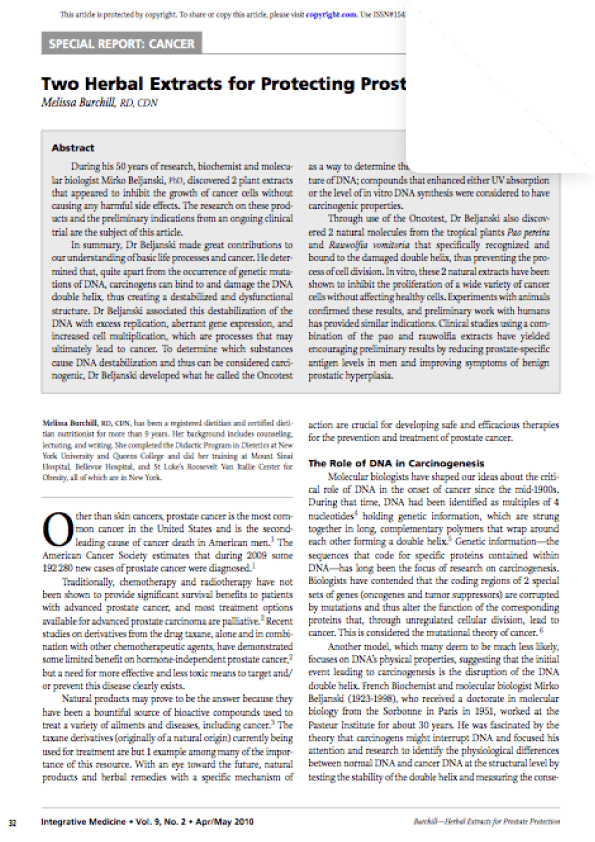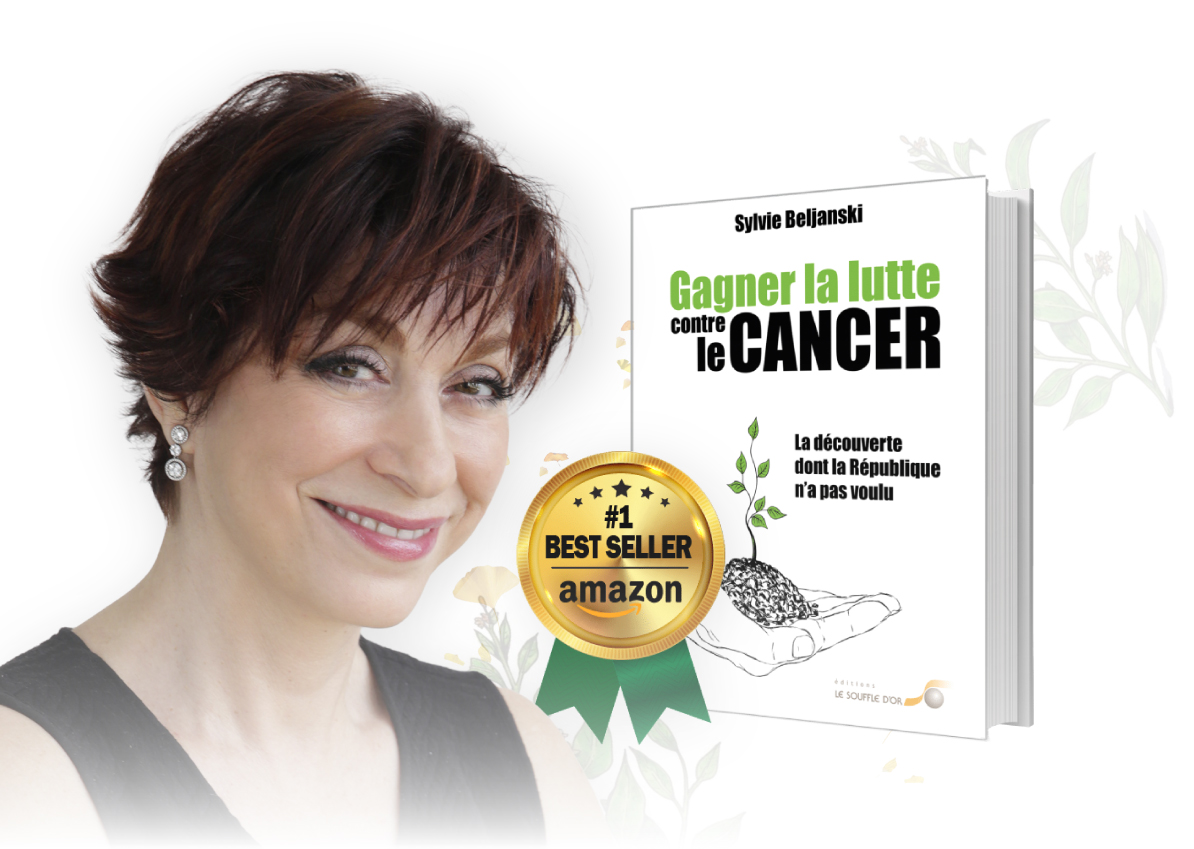Titre de la Publication: “Deux extraits de plantes pour protéger l’ADN des cellules de la prostate”
“Two Herbal Extracts for Protecting Prostate Cell DNA – IMCJ April 2010” by Melissa Burchill, RN, CDN
A clinical trial began in 2006 and enrolled some 42 patients with elevated prostate specific antigen (PSA) readings (averaging 8 to 10 on the PSA scale) and a negative biopsy a group of men that in the industrialized world numbers in the millions.
One of the primary goals of the clinical trial was to determine if the plant extracts were safe. The research team did a dose escalation trial. The trial started at two capsules but has gone much higher, and so far all doses tested have been without side effects.
“We now know that this combination of Beljanski’s extracts can significantly lower PSAs in a 12-month period. Also we have had very few patients convert to prostate cancer and have found a number of patients who have had a dramatic improvement in their urinary symptoms. Men are clearly having less frequency, better streams and better flow rates. They are not getting up at night as often.
“The bottom line is that it appears our early results are reason to be very encouraged by Beljanski’s extracts’ ability to lower PSA and help older men urinate better, too.”
So how important are Beljanski’s findings to men’s health? “There are a lot of men undergoing PSA screening,” Dr. Katz said. “The PSA supposedly stands for “prostate specific antigen” but I say it is more accurately “patient stimulated anxiety.” When a man’s PSA is elevated, there could be many reasons for this, having nothing to do with cancer. But what we know now is that these cells that are growing can develop into cancer, and we would like to stop them from doing so. Also if the cells keep growing even in benign fashion, they will grow around the urethra and push in on it and provoke urinary symptoms in men. That’s where we want to lower the growth and division of prostate cells and that’s what we think we have shown with the extracts.
Source: “The Columbia Connection” by L.Stephen Coles, MD., Ph.D. The Doctors’ prescription for healthy living
Abstract
During his 50 years of research, biochemist and molecular biologist Mirko Beljanski, PhD, discovered 2 plant extracts that appeared to inhibit the growth of cancer cells without causing any harmful side effects. The research on these products and the preliminary indications from an ongoing clinical trial are the subject of this article. In summary, Dr Beljanski made great contributions to our understanding of basic life processes and cancer. He determined that, quite apart from the occurrence of genetic mutations of DNA, carcinogens can bind to and damage the DNA double helix, thus creating a destabilized and dysfunctional structure. Dr Beljanski associated this destabilization of the DNA with excess replication, aberrant gene expression, and increased cell multiplication, which are processes that may ultimately lead to cancer. To determine which substances cause DNA destabilization and thus can be considered carcinogenic, Dr Beljanski developed what he called the Oncotest as a way to determine the effect of a compound on the structure of DNA; compounds that enhanced either UV absorption or the level of in vitro DNA synthesis were considered to have carcinogenic properties. Through use of the Oncotest, Dr Beljanski also discovered 2 natural molecules from the tropical plants Pao pereira and Rauwolfia vomitoria that specifically recognized and bound to the damaged double helix, thus preventing the process of cell division. In vitro, these 2 natural extracts have been shown to inhibit the proliferation of a wide variety of cancer cells without affecting healthy cells. Experiments with animals confirmed these results, and preliminary work with humans has provided similar indications. Clinical studies using a combination of the pao and rauwolfia extracts have yielded encouraging preliminary results by reducing prostate-specific antigen levels in men and improving symptoms of benign prostatic hyperplasia.
Voir cette publication en détails
Partager
uncode-placeholder





